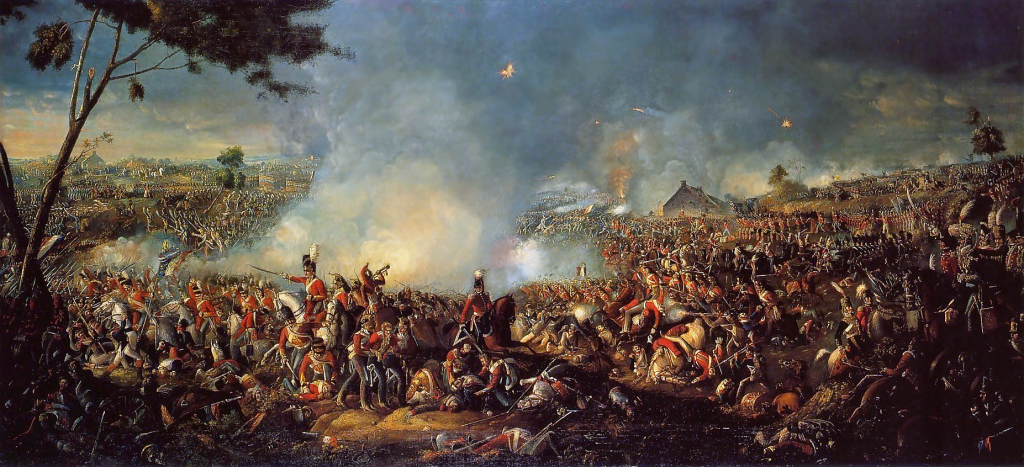If any readers can make it to Grasmere on June 6th, you might want to check out this exciting series of talks at the Wordsworth Trust on the legacies of Waterloo.
—
Wordsworth, War, and Waterloo Day
6 June 2015
Jerwood Centre, Grasmere
http://wordsworth.org.uk/
As we approach the bicentenary of the Battle of Waterloo (18th June), join us for a day to prepare for the international celebrations to come. Join us for five hours of talks, readings, music and refreshments, or just part of the afternoon as you like. Attendees of the event will have free entry to the Wordsworth, War & Waterloo exhibition.
The first part of the afternoon looks closely at the battle and its immediate aftermath, in particular, how news of it reached Britain and its people. Brian Cathcart, award winning author of The Case of Stephen Lawrence, Were You Still Up for Portillo? and The Fly in the Cathedral, will describe how the most momentous news of the battle took three days to travel from the blood-soaked battlefield of Waterloo to the decorous dining rooms of Regency London. In his new book, The News from Waterloo, The Race to Tell Britain of Wellington’s Victory, Brian reveals how news was reported and disseminated in 1815. Please note our Wordsworth, War & Waterloo exhibition displays a magnificent copy of The Times for 22 June 1815, that includes the Duke of Wellington’s despatch.
Dr David Higgins will focus on one of Romanticism’s most remarkable characters, Thomas De Quincey, who 34 years after the battle, describes in vivid detail how news of Waterloo reached different parts of the country through the fastest communication system of the time, the English mail-coach. De Quincey’s The English Mail-Coach essay presents a series of apocalyptic visions to which the Battle of Waterloo is central; De Quincey is aware that not all writers at the time shared his jubilation at Wellington’s victory.
The second part of the afternoon will focus on the reputations and image of Wellington and Napoleon. These were the figures that defined the ideas, writing and art of the Romantic period.
Professor Simon Bainbridge, co-curator of the Wordsworth Trust’s special exhibition, Wordsworth, War & Waterloo, will bring to life three of the exhibition’s most stunning exhibits. For the first time, Benjamin Robert Haydon’s famous portraits of Wellington, Wordsworth and Napoleon can be seen side by side in the North of England (on loan from the National Portrait Gallery). Haydon was fascinated by the figures of Wellington and Napoleon, and Simon’s talk will show their influence on what is now regarded as one of the great portraits of Wordsworth.
Nigel Sale, local author of the newly published The Lie at the Heart of Waterloo, The Battle’s Hidden Last Half Hour, will question the reputation surrounding the victorious Duke of Wellington. His book is described as a ‘critical analysis of the carefully engineered misinformation that has often totally misled historians and students of military history for so long’ and also ‘brings to life the horrifying reality of battle for the soldiers in Napoleonic warfare’.
The final part of the day will be a performance of music by The Songs of Waterloo, a small group of musicians who will perform a range of songs about the epic confrontation between Napoleon and Wellington, and those who fought and died under their command.
Refreshments will be served in the afternoon and early evening; we hope to have a glass of ale prior to the musical performance. We hope this will be a stimulating and enjoyable afternoon, befitting of the events of 200 years ago.

